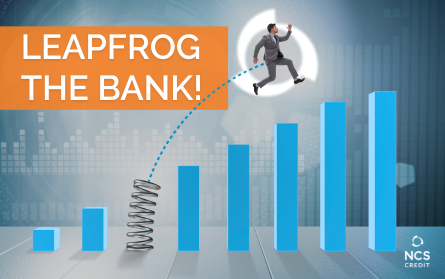
The Value of UCCs: Beyond Basic Protection
Let’s say you supply $250,000 worth of goods to your customer. If your customer defaults or files for bankruptcy, and you didn’t file a UCC, you’re an unsecured creditor. Being an unsecured creditor means you’re last in the payment line behind the banks, landlords, taxing authorities, and secured lenders.
With a properly perfected UCC, you become a secured creditor, giving you a claim to the inventory or proceeds. With a properly filed UCC (specifically, a Purchase Money Security Interest) plus super-priority status, you move to the front of the payment line, even ahead of banks and other creditors with blanket UCCs.
It’s not just protection. It’s power.
What Is a UCC Financing Statement?
Article 9 of the Uniform Commercial Code (UCC) provides you (a creditor) with an opportunity to protect your accounts receivable, inventory or equipment, in the event your customer defaults on payment or files for bankruptcy. This protection is established by filing a UCC (aka UCC-1). A UCC-1 Financing Statement is a public notice that you have a secured interest in specific collateral (like inventory, equipment, or A/R). In compliance with Article 9 of the UCC, the Financing Statement is filed with the Secretary of State where your customer is located.
When done right, a UCC filing:
- Establishes your legal right to repossess or claim proceeds from collateral
- Gives you leverage in collection efforts and customer negotiations
- Improves your recovery position in bankruptcy proceedings
But when done strategically, it can do even more. Enter: super-priority.
What Is Super-Priority?
Super-priority is the highest level of secured creditor status available under the UCC. It allows you to take priority over existing, previously filed security interests, but only under specific conditions.
Previously filed security interests? Yes! Super-priority lands you in front of banks and competitors.
The most common way to obtain super-priority is through a Purchase Money Security Interest (PMSI).
How to Get Super-Priority Through a PMSI
A PMSI allows a creditor to take priority over earlier filings, even if a bank or another creditor has a blanket lien on “all inventory.”
There are two primary use cases for a PMSI: Inventory or Equipment.
- PMSI in Inventory: Under UCC 9-102(48), inventory means goods, other than farm products, which:
- (A) are leased by a person as lessor;
- (B) are held by a person for sale or lease or to be furnished under a contract of service;
- (C) are furnished by a person under a contract of service; or
- (D) consist of raw materials, work in process, or materials used or consumed in a business.
- PMSI in Equipment: Under UCC 9-102(33), equipment means goods other than inventory, farm products, or consumer goods.
Subordinate, Don’t Terminate
If a bank asks you to terminate your PMSI UCC filing, consider subordination instead. Subordination allows you to maintain your security while giving the bank priority, without giving up your secured position entirely. If done correctly, you can still benefit from the PMSI’s super-priority status and leapfrog over other creditors. It’s a smart way to protect your right to recover while keeping the door open with the bank.
Real-World Example: The Power of Super-Priority
So, let’s go back to our earlier example – you provide $250,000 worth of goods to your customer, XYZ Manufacturer. XYZ already has a line of credit with a bank that has a blanket UCC on “all inventory.”
- If you didn’t file a UCC, the bank gets paid first if XYZ defaults.
- If you filed a UCC but didn’t follow PMSI rules, the bank still gets paid first.
- If you filed a UCC and followed all PMSI steps, you jump the line and get paid first on your goods, even before the bank.
This is the power of a properly filed, properly timed UCC with PMSI.
UCC Filings Are More Than Paperwork, They’re Protection
In today’s credit environment, it’s not a matter of if something will go wrong, it’s when. Whether you’re supplying inventory, leasing equipment, or offering trade credit, a UCC filing protects your right to get paid.
Ready to claim your super-priority place in the payment line? Contact us today!

Know Your Customer. Protect Your Cash Flow in Any Economy.
Strengthen credit relationships by knowing your customer and using UCC filings & mechanic's liens. Learn how to protect your business in any economy.

Why Waiting Until the 15th Risks Texas Lien and Bond Rights
Learn why mailing Texas notices of nonpayment and bond claims late risks your rights and how to adjust timing under USPS postmark changes.

USPS Postmark Changes and Preliminary Notice Deadlines
Learn how USPS first-scan postmarks affect construction notices in 2026. What credit managers need to know about mailing early and protecting lien rights.